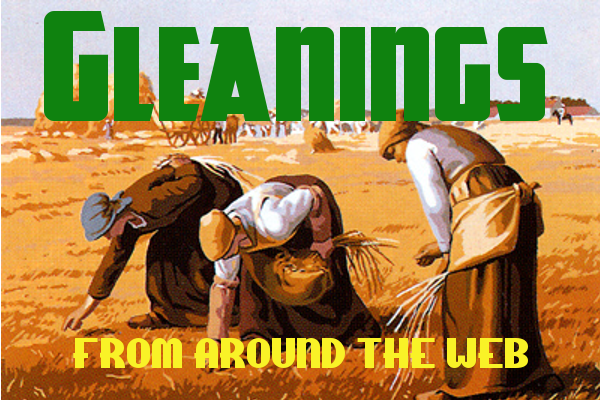This week, Malikia Johnson writes about her experience as a new mother, and how she found support and community in the unlikely location of Goa, India, through informal networks of people organizing themselves through WhatsApp groups.
Then, former member Nacho Gomez talks with Caleb of the PUNCHCARD podcast about the highs and lows of his 10 year history at the Black Cat Cafe, a not-for-profit, cooperatively run vegan cafe in Hackney, London.
And finally, Jeffrey Brite, one of the original USFWC board members, shares his thoughts on the last twenty years of the worker co-op movement.
WhatsApp Mutual Aid
A 21st Century Village for a New Mother in Goa (And Implications for the US)
by Malikia Johnson
These WhatsApp groups changed my life overnight. I went from struggling to find something to eat and a way to get around to relaxing into the support provided by the care of an Excel sheet. I opened the spreadsheet and my eyes widened as I could hear the theatrical voices of angels singing when I scrolled looking at the tiny screen on my phone. There were tiffins (home cooking services), pilots (transportation on scooters), and childcare providers all separated by area served and WhatsApp phone number. It was incredible.
The Rise & Fall of Black Cat Cafe Workers Cooperative
by PUNCHCARD
Even though from the outside Black Cat Cafe seems to be extremely successful Nacho shares about the constant challenges they faced - the difficulties paying members & staff fairly, and the set backs when trying to attract & retain worker members. Nacho & Caleb also reflect on the lessons learnt & we celebrate what Black Cat Cafe has achieved - having become a landmark in the vegan, activist & cooperative scenes for its pioneering vegan cuisine & dedication to supporting its community & activists.
Cooperatives After Incarceration
USDA Rural Development (YouTube) — Formerly incarcerated individuals face significant barriers to employment, including discrimination, lack of access to licensed professions, and polarization of the job market. Cooperatives, especially worker-owned cooperatives, can help address these barriers by providing dignified work, living wages, training, and a supportive community. When developing cooperative programs for formerly incarcerated individuals, it's important to create a strong cooperative ecosystem with comprehensive services, respect the talents and experiences of participants, and connect to the broader community...
B.C. Tree Fruits co-operative shutting down after 88 years
CBC — After operating in the Okanagan Valley for nearly nine decades, the B.C. Tree Fruits co-operative announced to growers on Friday it is dissolving and seeking court direction to liquidate its assets. The co-operative, which is made up of more than 230 farming families, is perhaps best known to consumers for its green leaf logo that has adorned fruit packaging and apple stickers for decades as a sign of B.C.-grown quality...
Why Minnesota is home to more than half of senior co-op living
MPR News — DENNIS JOHNSON: It is an interesting situation. One of the senior execs at Ebenezer back in the early to mid 1970s was observing the population in Richfield, Edina, which was basically a blue collar population as they aged in their homes, dealt with raking leaves and mowing lawn and shoveling snow and changing storm windows and cleaning gutters and looking at what other alternatives they might have to get away from that.
And frankly, there weren't any. I mean, it was basically going from a single family home to a skilled care facility. And so he developed several objectives for a senior housing facility. And it should be one that the seniors could age in place, one that was adaptable for aging in place, one where they would have maximum control, could live independently and not have to pay for unneeded or unwanted services.
And he bounced that idea around for a while. And finally, somebody suggested, you're talking about a cooperative. And that's what he did. He then pursued the development of a senior housing cooperative, and Ebenezer was the developer, 338 unit building in Edina 7500 York...
Navigating the Economic Crisis Through a Solidarity Economy
The Public Source — During the 2011 uprisings against Zine el-Abidine Ben Ali, the residents of Jemna, a town of some 8,000 inhabitants in deprived rural southern Tunisia, took control of a date oasis of approximately 11,000 date trees — following a 69-day sit-in. The land had been exploited by private companies associated with the former dictator’s family. This “popular nationalization” and conversion into a cooperative venture led to a fourfold increase in date production and revitalized the date-based agro-food business, creating new jobs, from 22 workers in 2011 to 133 in 2016..
Like what you find on GEO?
Make a Donation Today!
Your tax-deductible contribution ensures that GEO can continue to provide independent grassroots content about the cooperative and solidarity economy movements.
Got something to say?
Let us know. Send your comments, suggestions, rants and article submissions to editors@geo.coop.
Follow us on Social Media
Mastodon: social.coop/@GEO_Collective
FB: facebook.com/GrassrootsEconomicOrganizing/
Twitter: twitter.com/@GEO_Collective
Our mailing address is:
Grassroots Economic Organizing
P.O. Box 115
Riverdale MD 20738-0115





